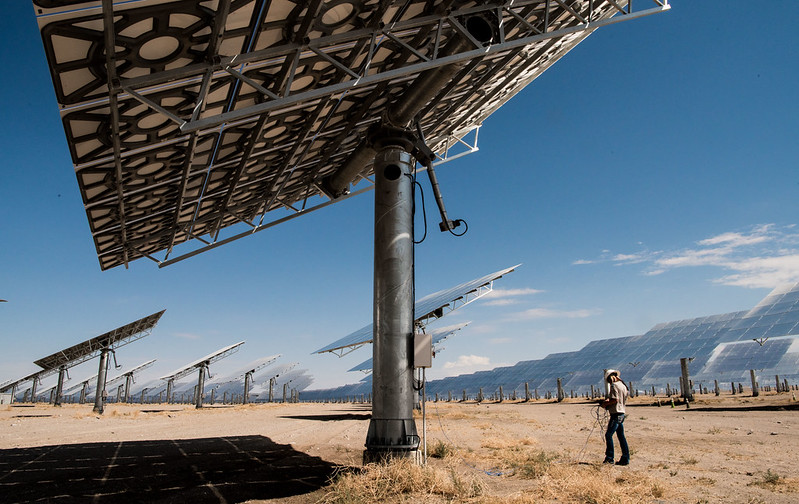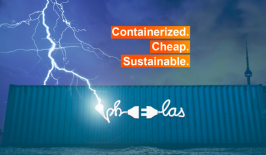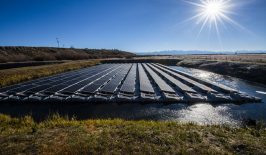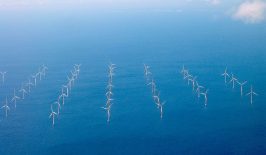The potential of renewable energies could be far greater than we think. According to a recent report by Carbon Tracker, solar and wind energy could yield more than 100 times our global energy demand, even using just technology we already have.
These new and booming industries could also be a much-needed boost to the economies of many developing countries, with Africa potentially becoming a “renewables superpower”. The main obstacle to this more sustainable world? According to the report, it’s not money, technology or space, but sheer lack of political will.
The way we power our world is changing. Until recently, most renewable energies, such as solar and wind, weren’t viable without being subsidised by governments, which greatly limited the scale of their impact. But the cost of these energies has plunged in the last three years, opening up enormous opportunities and enabling a mass shift away from fossil fuels.
Carbon Tracker’s latest report, The Sky’s the Limit, claims the fossil fuel era is at an end. The report argues that the fossil fuel industry simply cannot compete with the swift technological growth of renewables. If the current rate of 15-20% growth in renewables continues, fossil fuels would likely be pushed out of the total energy supply by 2050. In fact, the report continues, with current technology the world has the potential to capture as much each year from solar PV alone (5,800 PWh) as could be generated by burning all known fossil fuel reserves. Onshore and offshore wind could capture around an additional 900 PWh a year.
The implications go beyond sustainability. The report speculates that a large-scale shift to renewables could noticeably reshuffle the world economy, with Australia possibly becoming “the battery of the world” and Africa becoming a “renewables superpower”. Africa holds 39 per cent of the world’s global potential for renewable energy, with sparsely populated countries such as Namibia having superabundant renewables potential relative to their population. The prospering renewables industry should also create many much-needed local jobs.
But not all countries are expected to benefit equally. Some countries, the report found, have stretched potential, such as South Korea, which possesses less than 10 times its demand. Germany is noted as an exceptional case, with the third lowest solar and wind technical potential in the world relative to its large energy demand. The challenges for Germany are significant, but rare; the report optimistically argues that if Germany can manage to overcome the barriers to renewable energy, then all other countries can too.
While scarcity of land is often foreseen as an issue when it comes to building fields of solar panels and towering windmills, the report finds that, broadly speaking, space shouldn’t be a problem. It estimates that the land required for solar panels alone to provide all the world’s global energy is 450,000 km squared – just 0.3 per cent of the global land area, less than what is needed for the world to run on fossil fuels.
According to historical analysis carried out by the researchers, humans have a propensity for quickly exploiting new and cheap energy sources, as demonstrated by the rapid development of shale gas. Now that new opportunities have been unlocked, there’s every reason to believe that solar and wind development will grow exponentially.
If this new research is to be believed, it spells promise for a more sustainable future – but puts greater pressure on governments and lobbyists to ensure the shift to renewables happens sooner rather than later.
The report was published by the Carbon Tracker initiative, a team of financial experts specialising in climate risk and the market. Their research explores the workings of the financial system amid the transition to a low carbon economy.






